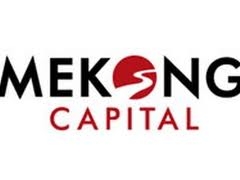Mekong Capital pushing for tax changes
 A local tax regulation on private equity investment, effective from late 2010, puts 25 per cent tax on earning from investments in companies which are not registered as public companies. Such a regulation has led to heavy tax duty for Mekong Capital’s investments in non-public companies, which it started eight to 10 years ago and plans to divest realising gains right now.
A local tax regulation on private equity investment, effective from late 2010, puts 25 per cent tax on earning from investments in companies which are not registered as public companies. Such a regulation has led to heavy tax duty for Mekong Capital’s investments in non-public companies, which it started eight to 10 years ago and plans to divest realising gains right now.
“Capital gain tax of 25 per cent is one of factors affecting the most on internal return rate (IRR) to investors,” said Truong Dieu Le, chief representative for Mekong Capital.
Critical problem is the insufficient regulation of calculating the earning, according to a petition of Mekong Capital submitted to the Ministry of Finance in a Hanoi-based conference on tax policies for securities business last week.
The petition listed several expenses that are yet to be counted as allowable expenses in the earning calculation. Those expenses included legal fees in approaching and divesting the private company, along with accounting and auditing fees, advising fees during the period the investment firm joining managing the company and foreign exchange losses.
Foreign investment firms have to bear exchange rate losses due to VND devaluation when they repatriate their returns, the petition added. For funds denominated in USD, such as Mekong Capital’s funds, the 25 per cent tax on gains in VND can result in an effective tax rate of around 40 per cent after converting into USD.
It means actual tax is much higher than what would be expected based on regulations, leading to an inappropriately high tax duty. Mekong Capital cited two specific investment cases including its investments in furniture firm AA Corp. and household products firm ICP.
In the AA case, the firm actually got earning of just VND29.3 billion ($1.41 million) on its divestiture, while the regulated calculation resulting in earning of VND48 billion ($2.31 million) and taxing VND12 billion. In the ICP case, the firm earned VND117.7 billion while the regulated calculation resulted in earning of VND162 billion and taxing the firm VND40.5 billion
Such calculations led to actual taxes of as high as 41 per cent and 34 per cent respectively for the investment firm.
In fact, many funds including Dragon Capital had claimed about the way regulators levying a 25 per cent tax rate on private equity investments’ earnings. Those ideas claimed that the regulation was unfair compared with investments in public companies, which is taxed just 0.1 per cent on divestiture’s revenue.
“Our investment process faces so many risks but we have to bear high risk on divestiture,” said Le, suggesting the regulations should apply the same policy of tax 0.1 per cent on divestiture’s revenue, so as not to lead to insufficient calculation of earning.
“Private equity investors normally face higher risks and incur higher costs compared to public equity investors. This is because they bear higher risks in terms of transparency and corporate governance, putting more resources for value creation during the appraisal and investment holding period, holding the investments for a longer period,” Le noted.
“When we made the investments the tax was 0.1 per cent on revenue, but when we made divestitures the tax turned to be 25 per cent on earnings. The investors look into the change in policies and feel that there are too many risks,” Le said, adding that this issue negatively impacted on the ability of new private equity funds to be launched for Vietnam as tax is one of the issues that potential investors in private equity funds consider when determining which countries to invest in.
“Applying such a tax will make foreign private equity firms hesitate to invest in Vietnam,” she added.
Responding to Mekong Capital’s petition, Nguyen Van Phung, deputy head of the Ministry of Finance’s Tax Policy Department said policy makers “will consider that problem.”
What the stars mean:
★ Poor ★ ★ Promising ★★★ Good ★★★★ Very good ★★★★★ Exceptional
Related Contents
Latest News
More News
- State corporations poised to drive 2026 growth (February 03, 2026 | 13:58)
- Why high-tech talent will define Vietnam’s growth (February 02, 2026 | 10:47)
- FMCG resilience amid varying storms (February 02, 2026 | 10:00)
- Customs reforms strengthen business confidence, support trade growth (February 01, 2026 | 08:20)
- Vietnam and US to launch sixth trade negotiation round (January 30, 2026 | 15:19)
- Digital publishing emerges as key growth driver in Vietnam (January 30, 2026 | 10:59)
- EVN signs key contract for Tri An hydropower expansion (January 30, 2026 | 10:57)
- Vietnam to lead trade growth in ASEAN (January 29, 2026 | 15:08)
- Carlsberg Vietnam delivers Lunar New Year support in central region (January 28, 2026 | 17:19)
- TikTok penalised $35,000 in Vietnam for consumer protection violations (January 28, 2026 | 17:15)

 Tag:
Tag:



















 Mobile Version
Mobile Version